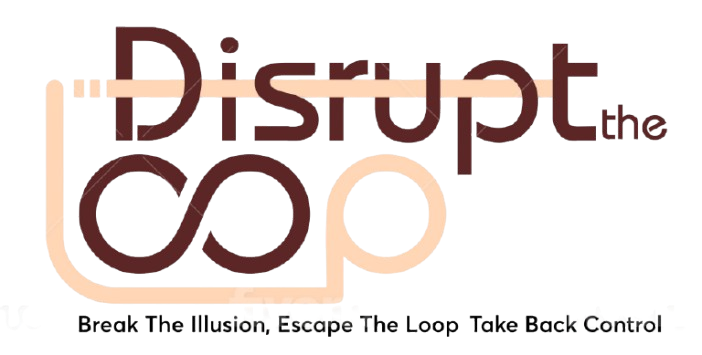I recently lost $50,000 gambling. Not all at once, but over time—across multiple trips to different countries—believing each time that I could win back what I had lost. Each loss hurt, financially and emotionally, yet somehow my brain found a way to reframe this disaster.
“At least you learned something valuable,” my mind told me. “This knowledge was worth the price.”
But was it? Did I really need to lose that much money to learn these lessons?
This experience made me question a deep-seated belief that many of us hold: that wisdom must be earned through suffering. But is that really true, or is it just a mental trick we use to justify our mistakes?
The “School of Hard Knocks” Myth
From childhood, we’re taught that painful experiences are the best teachers:
🗣️ “You’ll learn your lesson now.”
🗣️ “Experience is the best teacher.”
🗣️ “Some people just have to learn the hard way.”
These messages sink in deep. They create a belief that knowledge gained without suffering somehow doesn’t count as much. It’s as if we don’t fully trust wisdom unless we’ve paid for it with pain.
In my case, this belief was reinforced by something I often heard growing up:
🔹 “The only thing you can excel at is learning.”
When your self-worth is tied to knowledge, and you believe the best knowledge comes through suffering, you’ve created a dangerous combination—one that makes pain seem like a necessary price for growth.
How Our Brains Justify Pain
Our brains hate meaningless suffering. To cope, they create narratives that make painful experiences seem valuable. After losing all that money, my brain went into overdrive:
🧠 “You didn’t just lose money—you gained insight into human psychology.”
🧠 “You now understand addiction patterns that most people never grasp.”
🧠 “This experience made you wiser about how casinos manipulate behavior.”
🧠 “You’ve gained knowledge that will help others avoid similar mistakes.”
These aren’t lies. I did learn these things. But did I need to lose $50,000 to learn them?
Could I have gained 90% of this wisdom by:
✅ Reading books on gambling psychology?
✅ Talking to former gambling addicts?
✅ Studying the statistical odds of casino games?
✅ Setting a strict $500 limit to experience the environment firsthand?
Probably. But my brain insisted that the expensive route was necessary—and maybe even a bargain, considering the “wisdom” gained.
Why We Fall for This Trick
This mental trick serves several purposes:
✔ It reduces regret. “I didn’t waste money; I invested in education.”
✔ It preserves our self-image. “I’m not a fool who lost money; I’m a seeker of deeper understanding.”
✔ It creates meaning from suffering. “My pain wasn’t pointless; it had purpose.”
✔ It secretly justifies future risky behavior. “I need this risky experience because that’s how real learning happens.”
The trick works because it contains some truth. Yes, we do learn from painful experiences. But that doesn’t mean suffering is the only—or even the best—teacher.
The Real Cost of “Hard-Earned Wisdom”
Beyond the obvious price ($50,000 in my case), this belief system carries hidden costs:
📌 We dismiss wisdom that comes easily. Books, conversations, and others’ experiences seem less valuable because we didn’t suffer for them.
📌 We become attracted to destructive experiences. If the most valuable insights come through pain, part of us starts seeking painful situations.
📌 We miss opportunities to learn preventively. Why bother preparing if the “real” learning happens through consequences?
📌 We romanticize unnecessary suffering. Not all painful experiences lead to wisdom; many are simply damaging.
Breaking the Pattern
If you recognize this thinking in yourself, here’s how to challenge it:
1. Question the True Cost of Your “Education”
Ask yourself: Could I have learned this lesson for less? Was this really the most efficient way to gain this insight?
2. Value All Sources of Wisdom Equally
Practice respecting knowledge gained through books, conversations, and observation just as much as lessons learned through personal hardship.
3. Find Other Sources of Self-Worth
If your identity is tied to being “knowledgeable,” develop other strengths—kindness, creativity, relationships, or helping others.
4. Calculate Learning Efficiency
Before taking a risk, ask: What’s the ratio between potential wisdom gained and potential suffering endured? High-risk, low-learning activities aren’t good investments.
5. Learn from Others’ Mistakes
One of our greatest human abilities is learning from others’ experiences. We don’t all need to touch the hot stove to know it burns.
Wisdom Doesn’t Need to Be Expensive
The idea that valuable knowledge must come through personal suffering is a myth. Some of history’s wisest people gained their insights through:
📖 Study (Socrates, Da Vinci)
🧐 Observation (Newton, Darwin)
🗣️ Mentorship (Warren Buffett, Marcus Aurelius)
True wisdom might actually be learning life’s lessons while minimizing unnecessary pain.
I paid $50,000 for some insights about human psychology and addiction. If reading this helps you avoid similar “tuition payments” for your own life lessons, then perhaps my expensive education wasn’t completely wasted after all.
Final Thought: Seek Growth, Not Just Experience
Pain can teach us, but learning doesn’t require suffering. True wisdom comes from seeking knowledge proactively—not just reacting to mistakes.
So ask yourself:
👉 Are you learning the hard way because you have to—or because you believe you have to?
The answer might just save you a lot of time, money, and unnecessary pain.

